Nike BeTrue
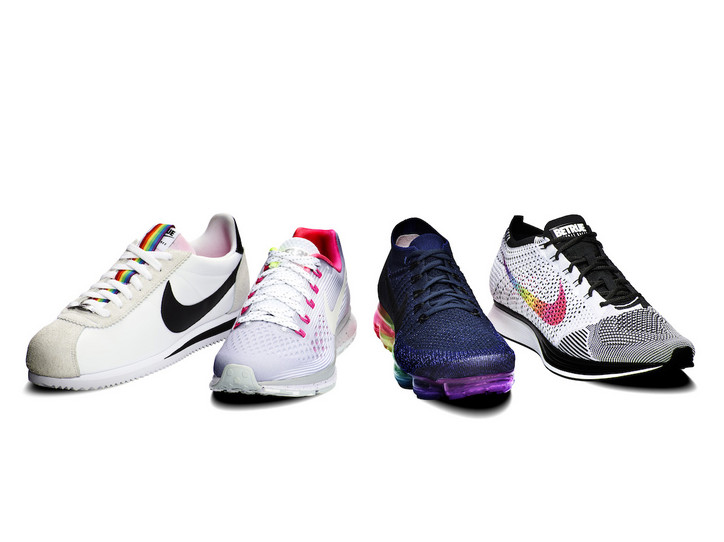
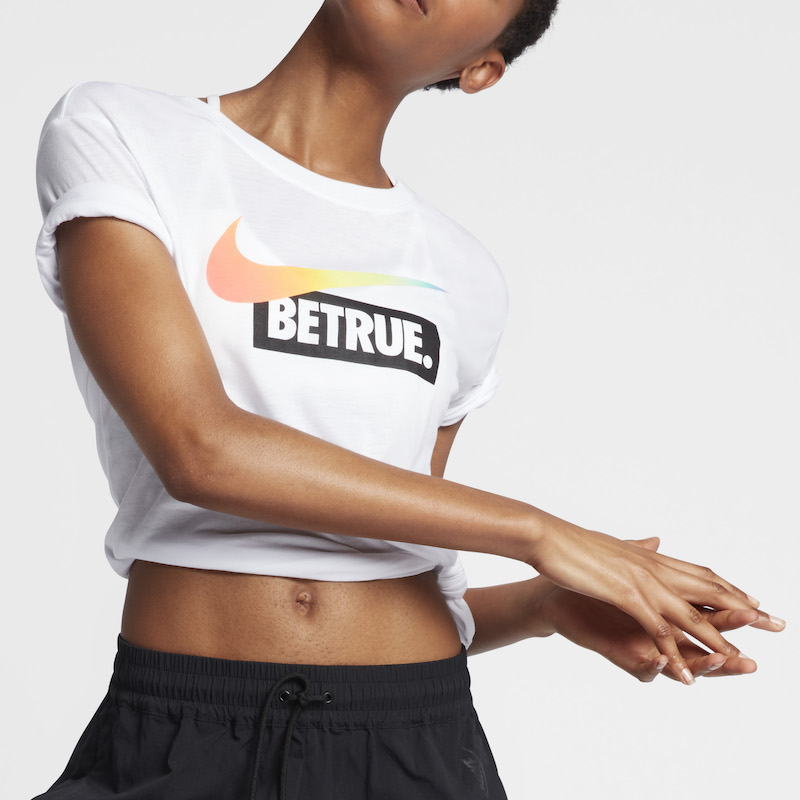
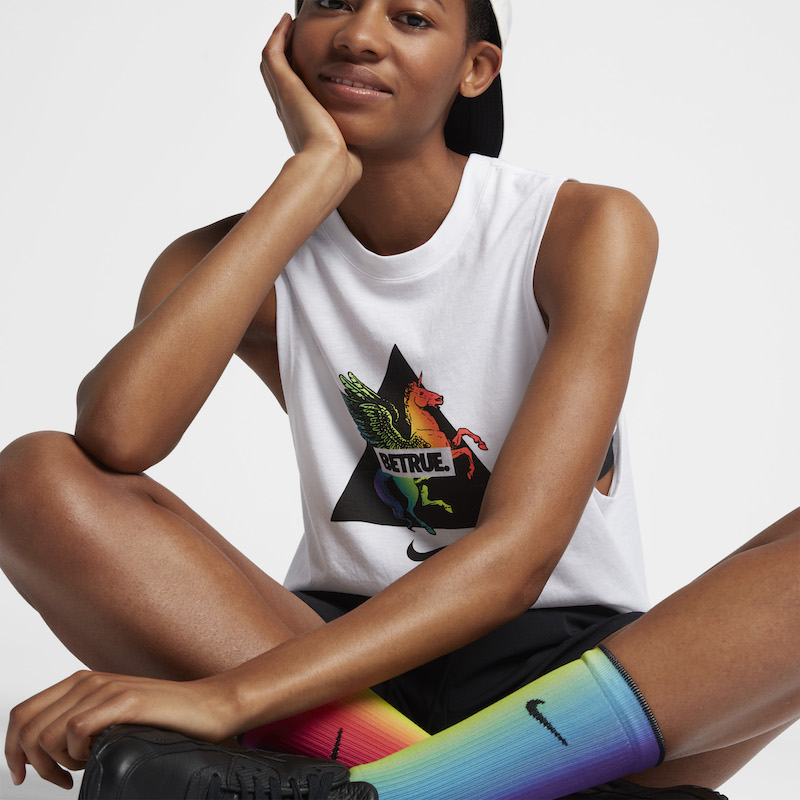
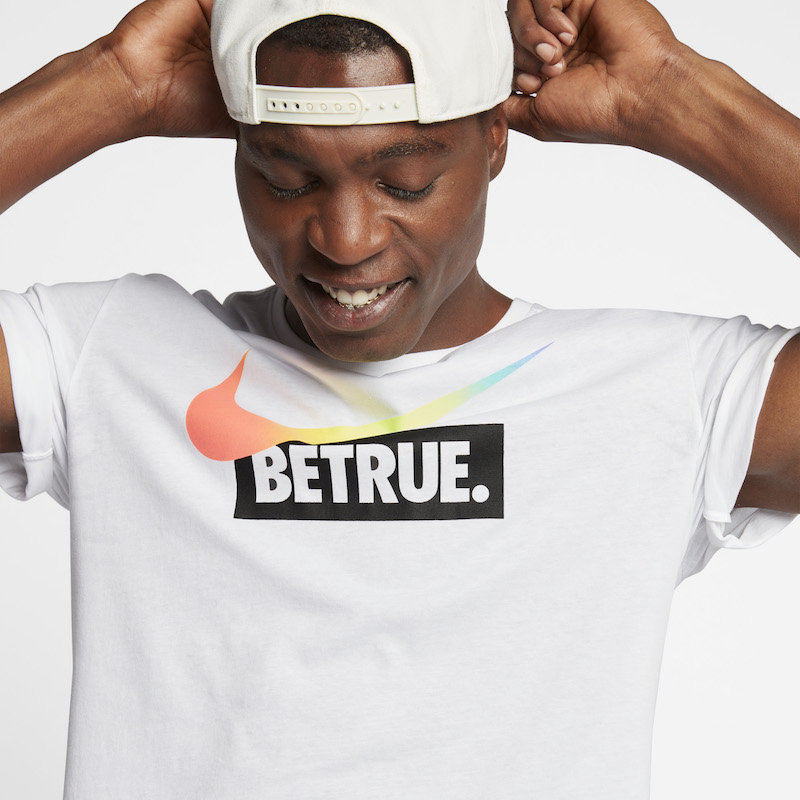
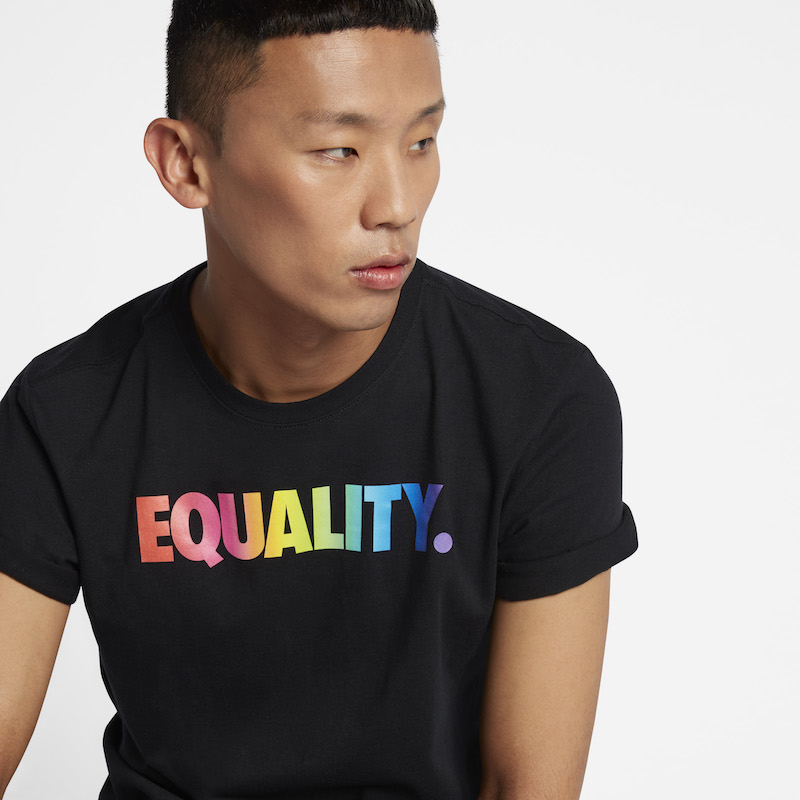
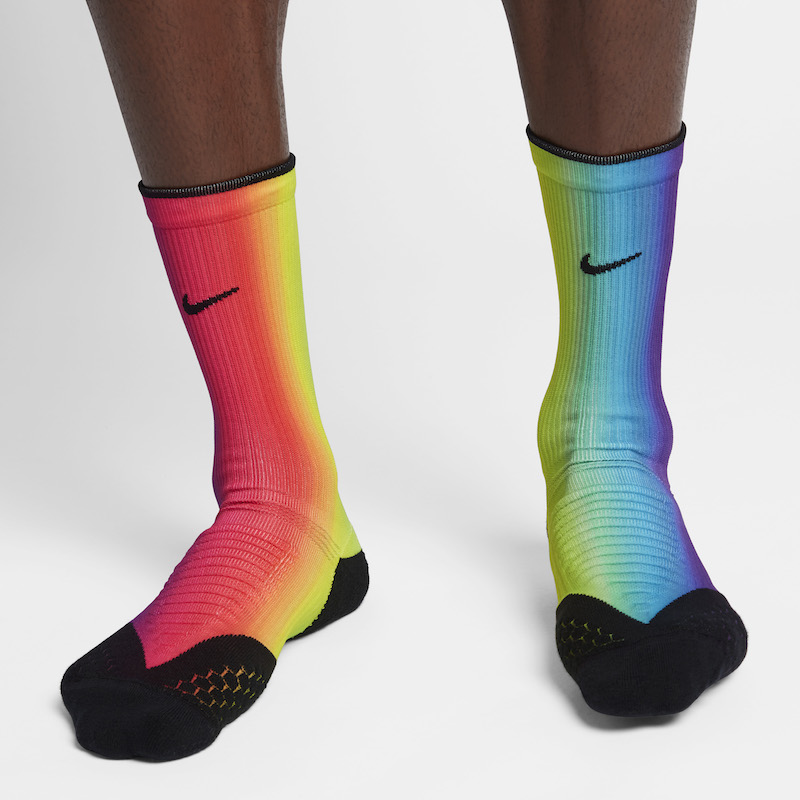
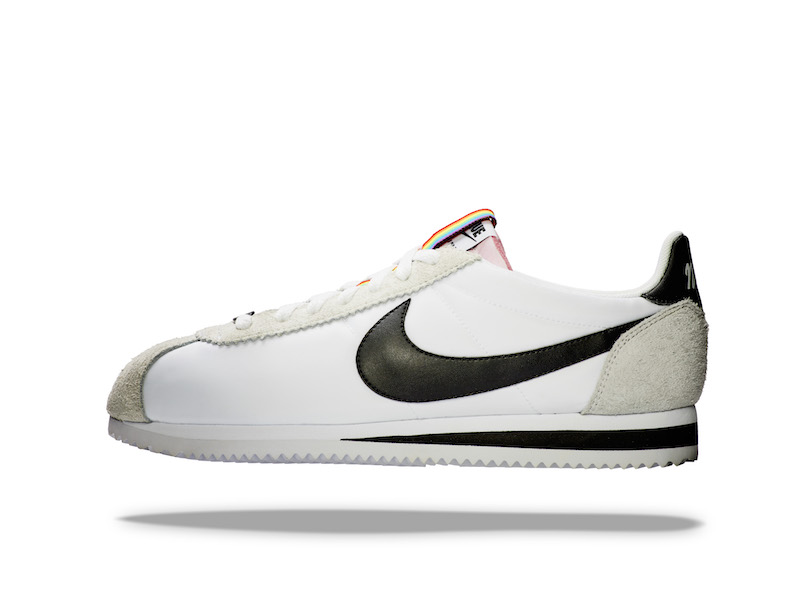
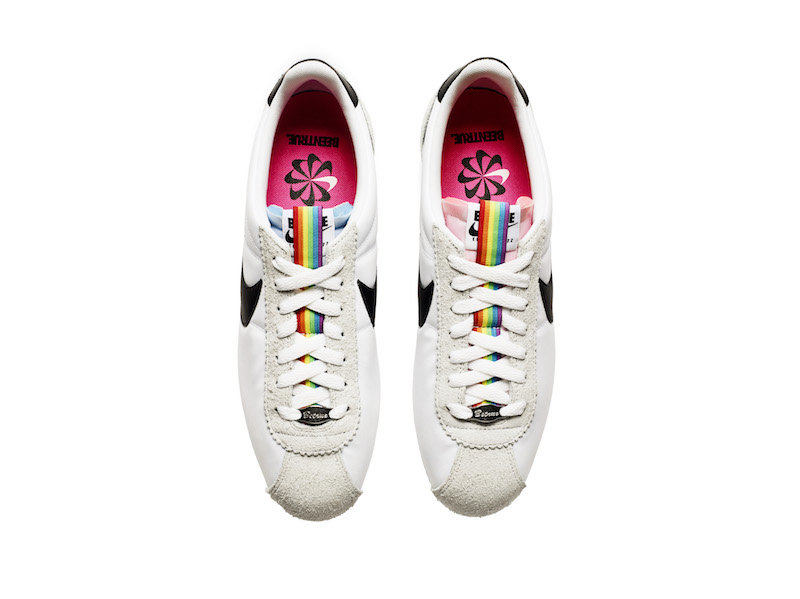
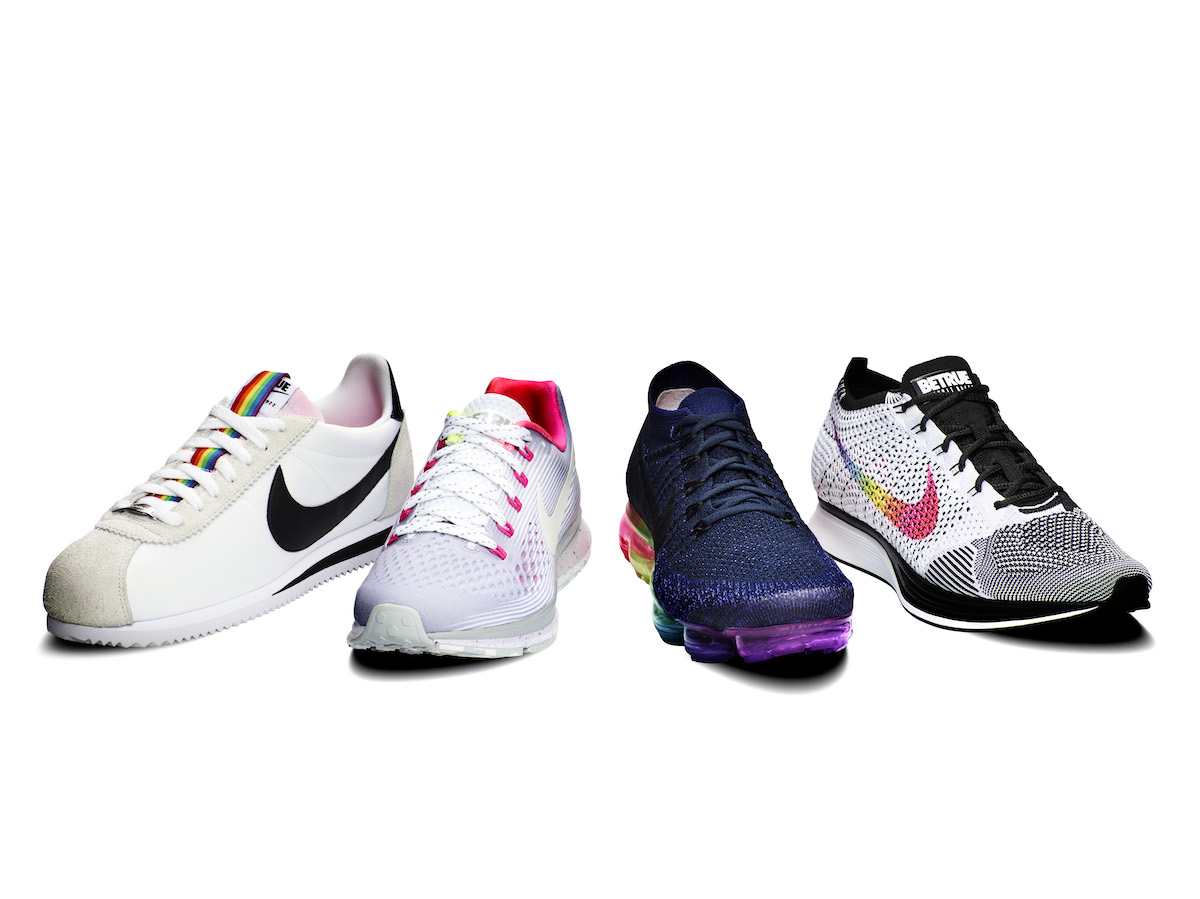
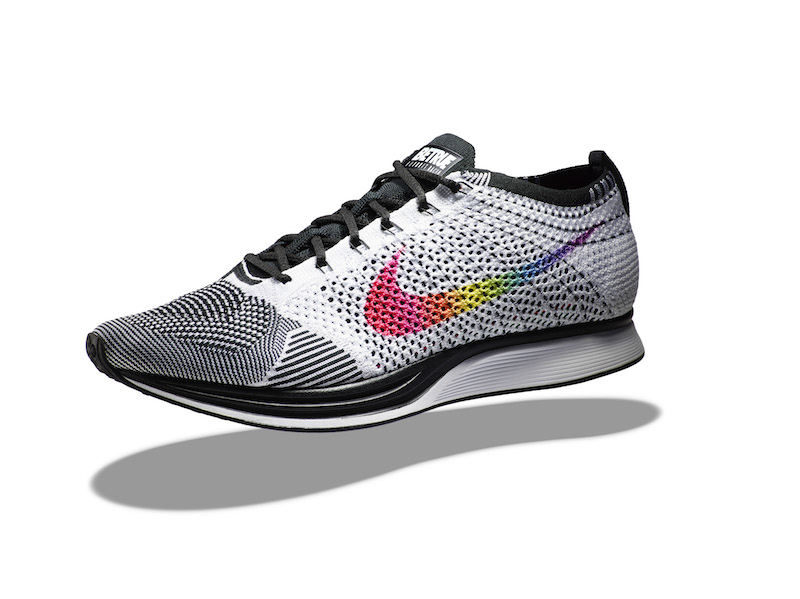
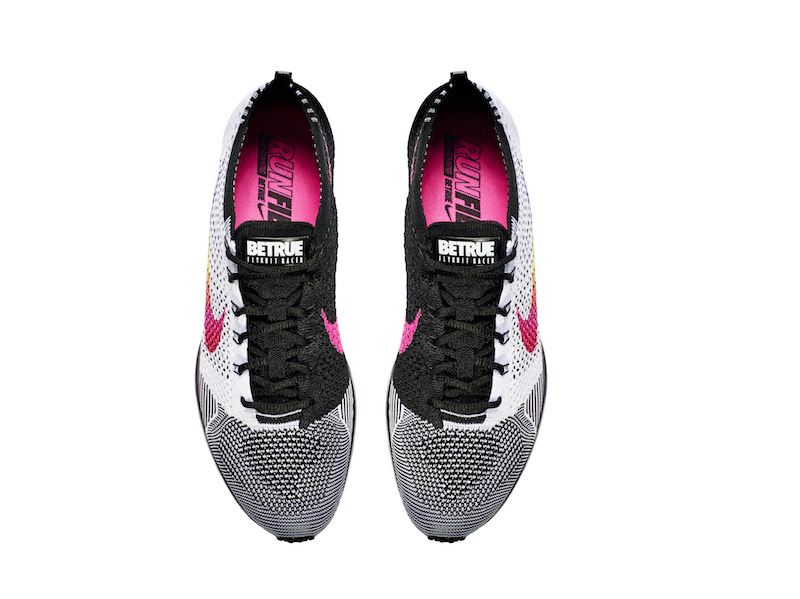

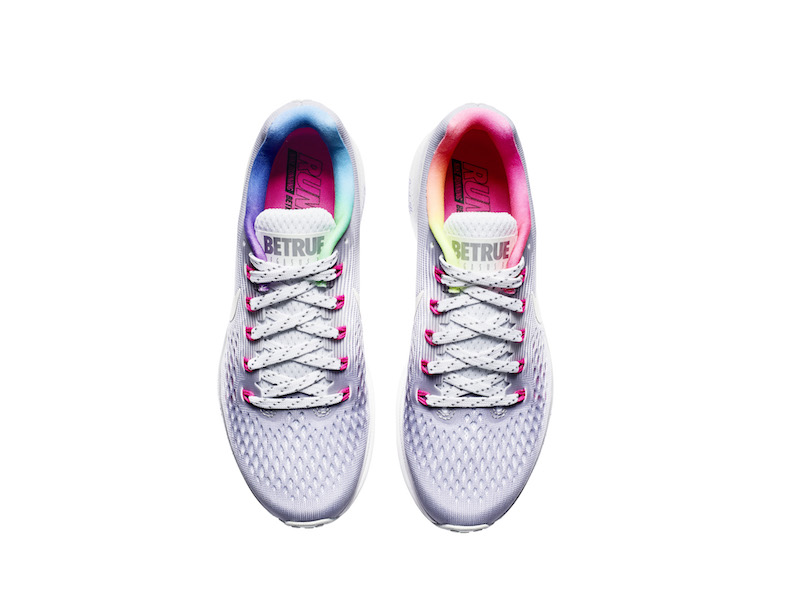

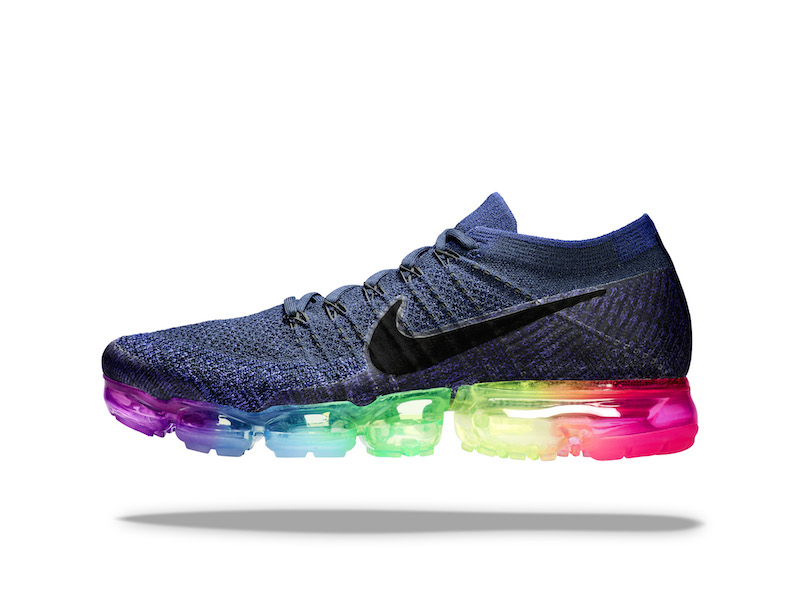
Stay informed on our latest news!















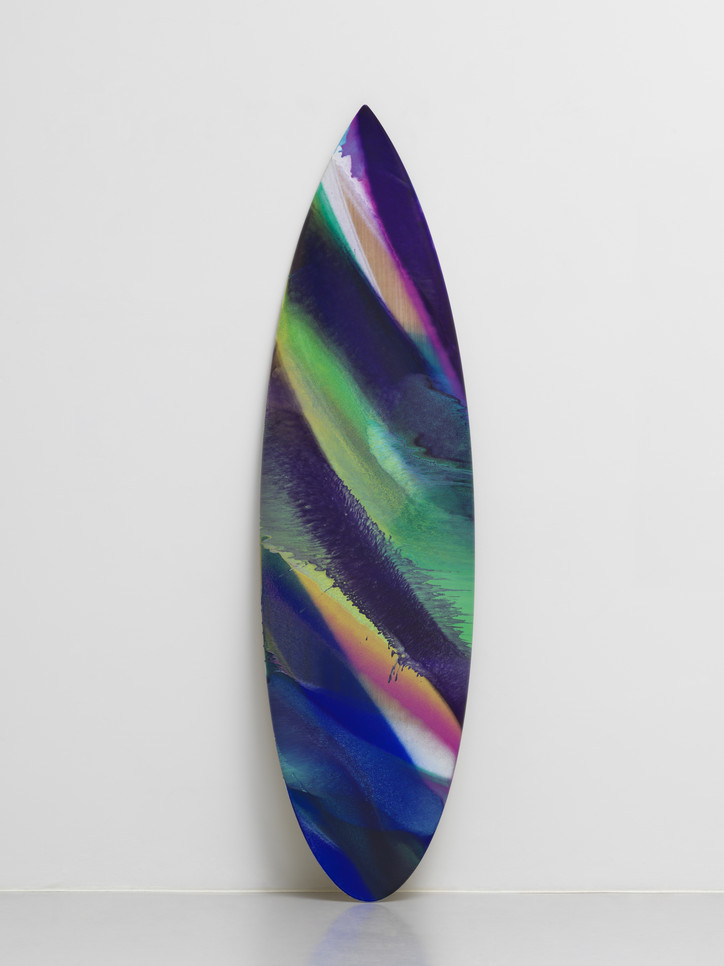
All proceeds will be going to Parley’s Global Clean Up Network, an alliance of organizations dedicated to cleaning up ocean life day by day with the reduction of plastic waste. Parley has continuously hit the nail on the head when it comes to protecting Earth in a stylish way. We don’t know what’s next for Parley, but we do know that it’ll be far from boring.
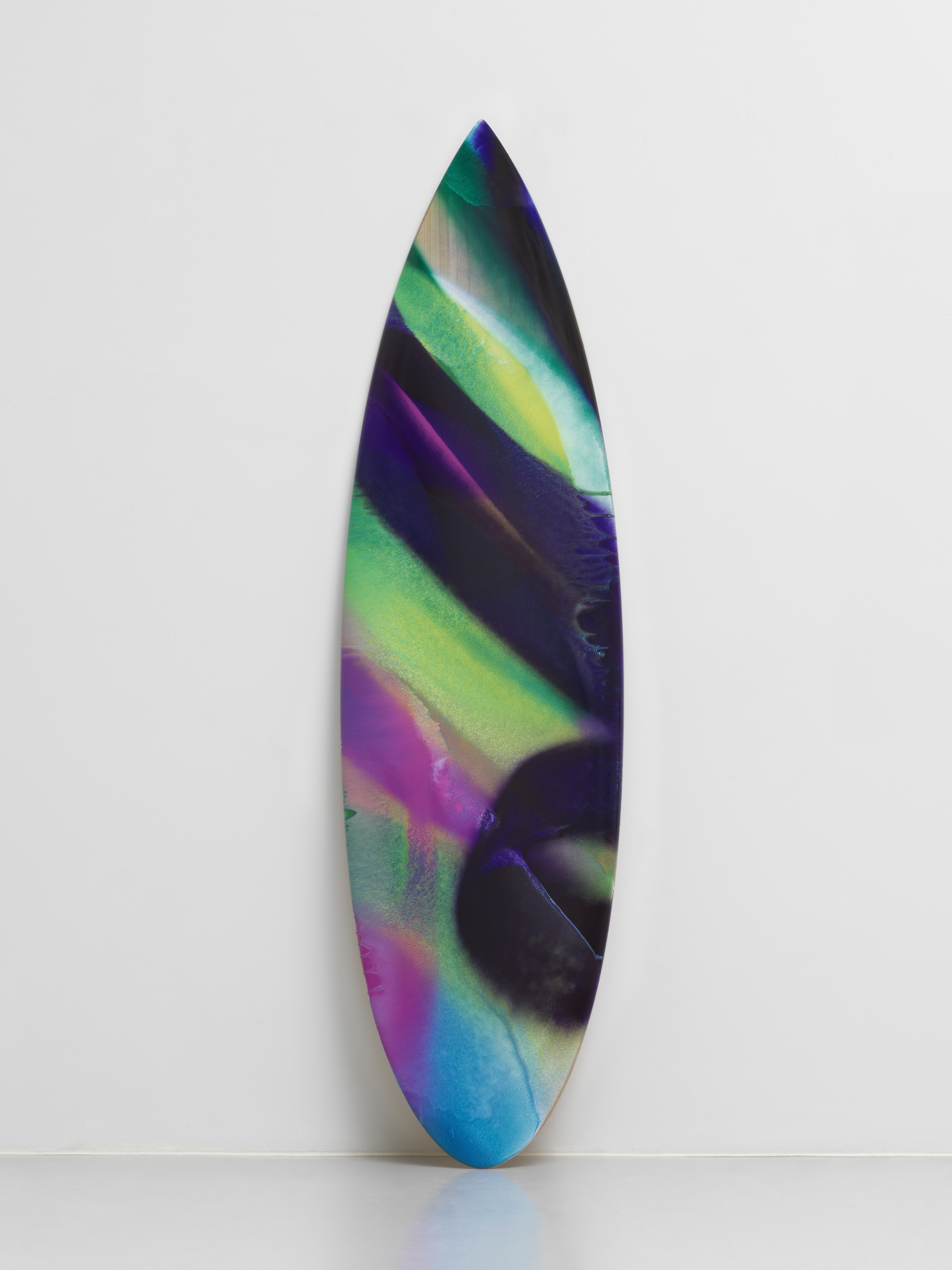
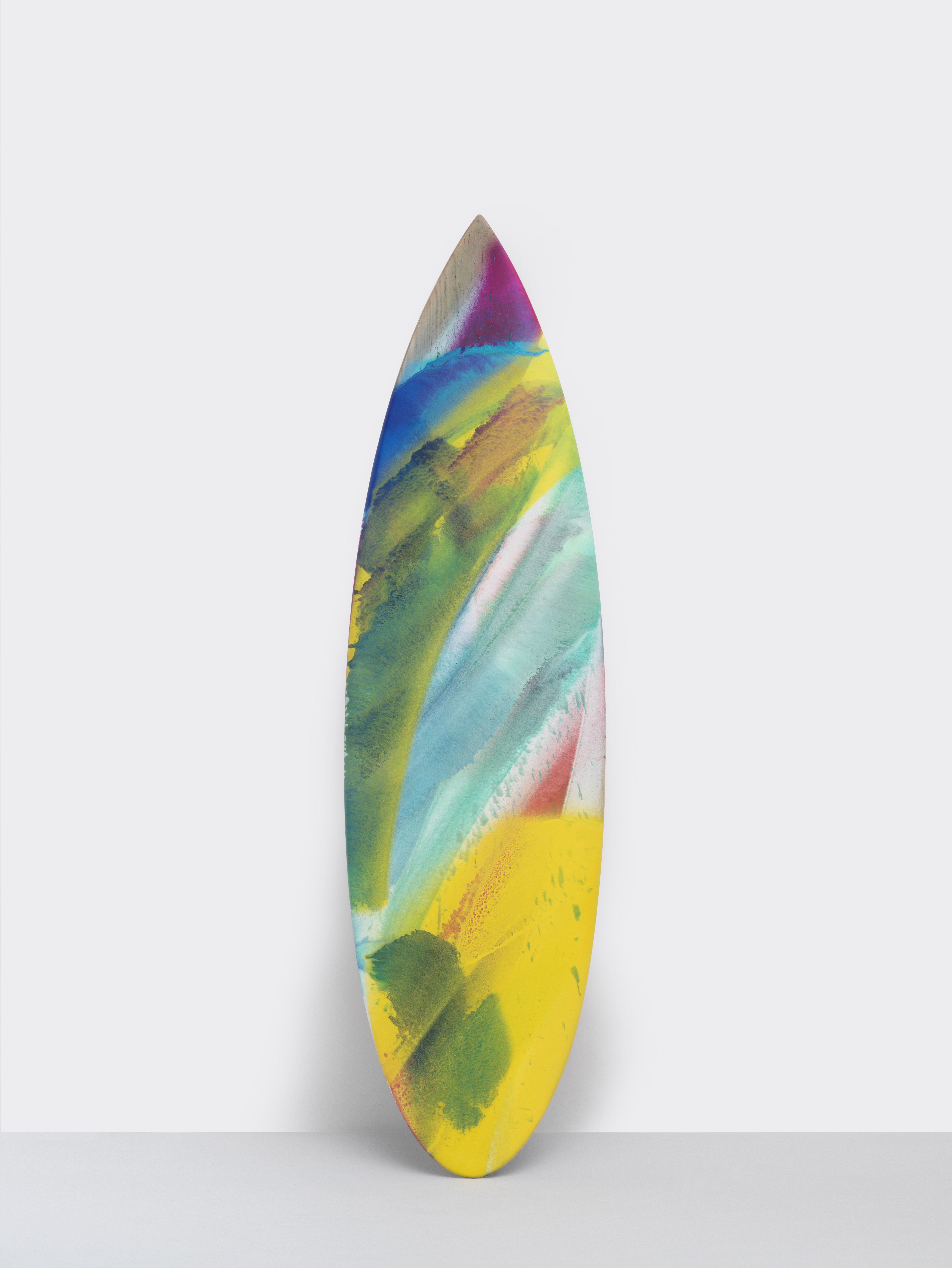

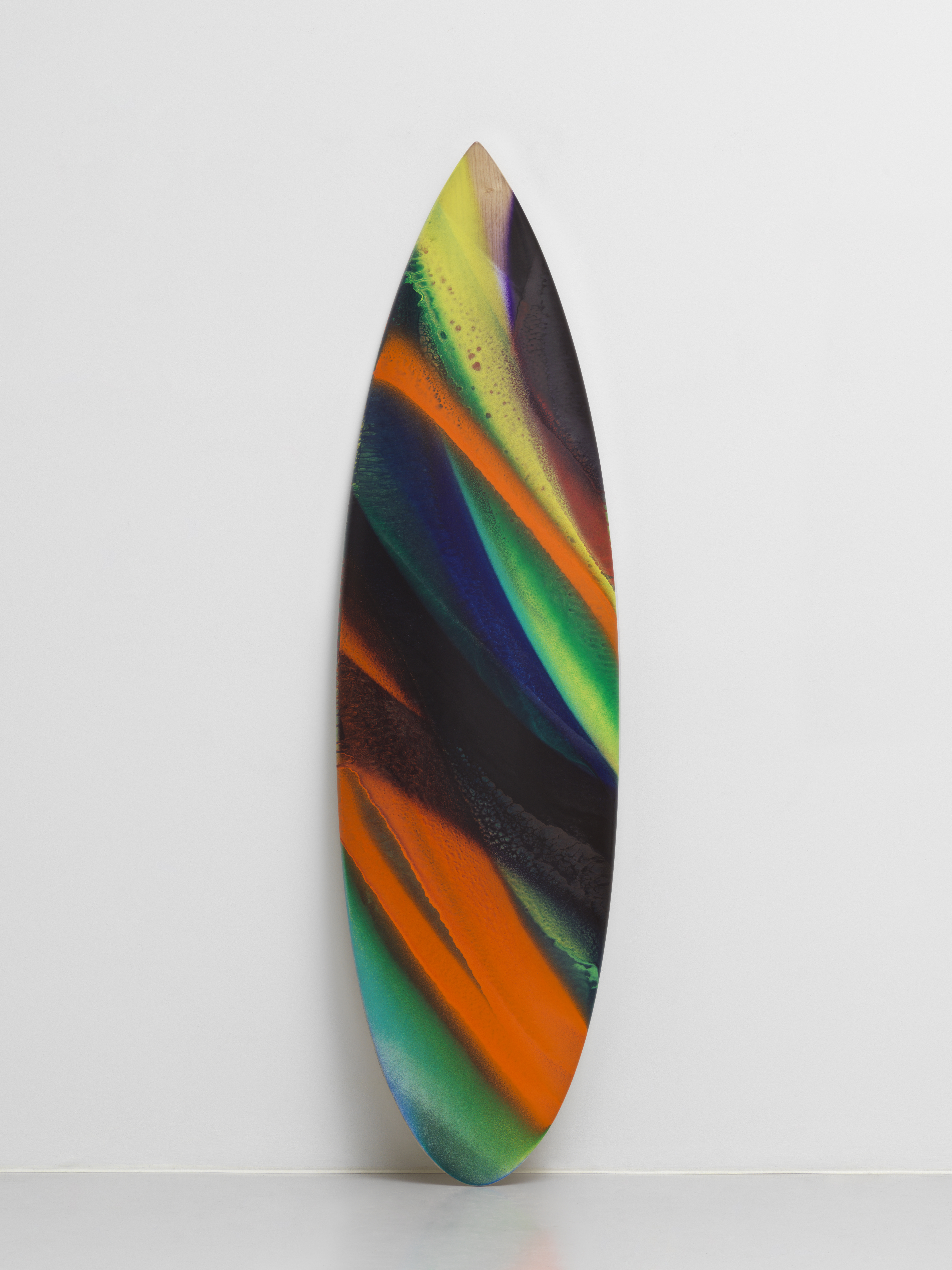
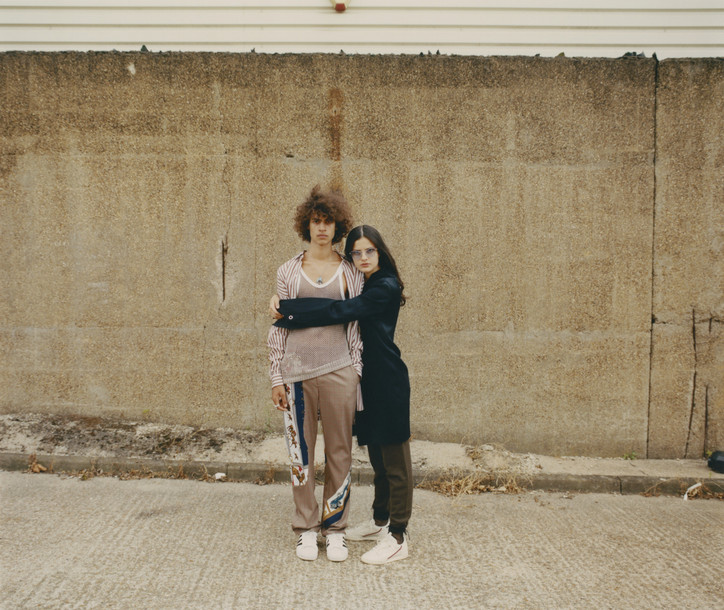
(Above) Finn wears shirt by LOU DALTON, pants by AHLUWALIA STUDIO, vest and jewelry from TEMPLE ARCHIVE, shoes by ADIDAS. Evangeline wears blazer by LUDOVIC DE SAINT SERNIN, vintage pants by HERMÈS from REWIND, socks by ATTITUDE, shoes by ADIDAS.
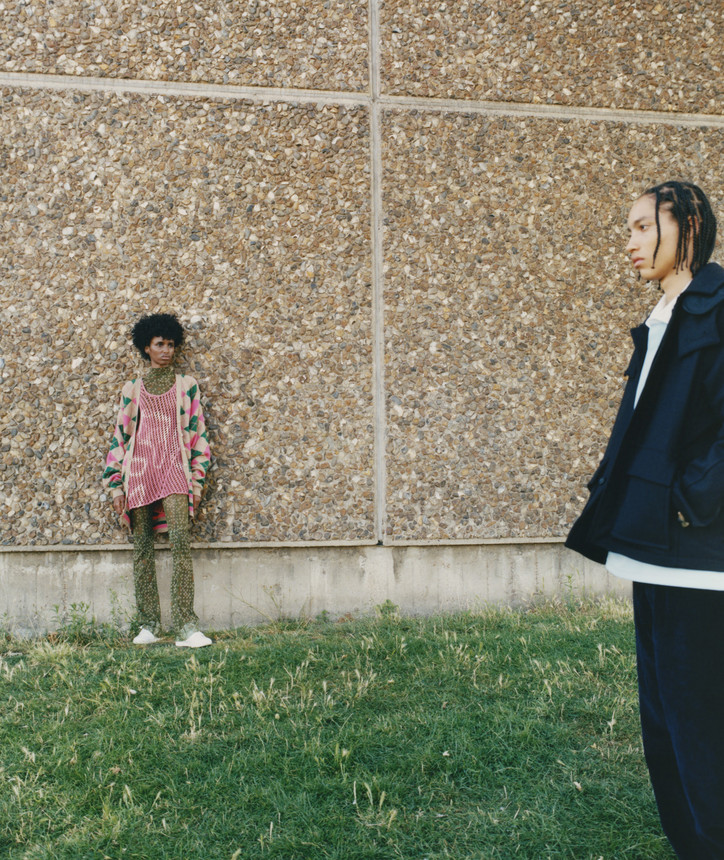
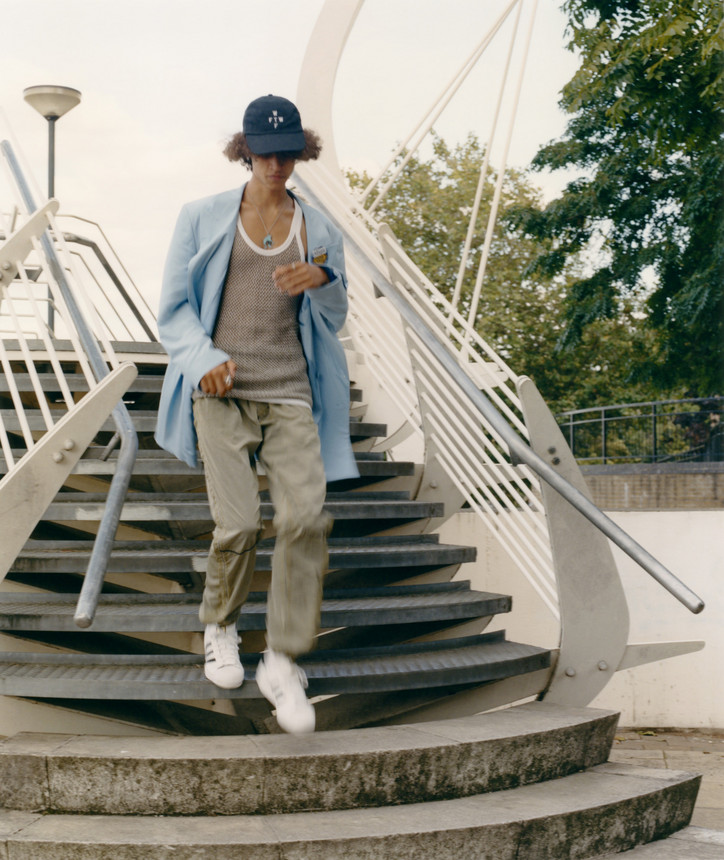
Left - Bibi wears top and pants by SUPRIYA LELE, cardigan by MOLLY GODDARD, vest by NICHOLAS DALEY, shoes by ADIDAS. Andrew wears top by ADIDAS, pants by WALES BONNER, jacket by LOU DALTON.
Right - Finn wears jacket by MARTINE ROSE, pants by 1017 ALYX 9SM, shoes by ADIDAS, vest and jewelry from TEMPLE ARCHIVE, hat by STUGAZI.
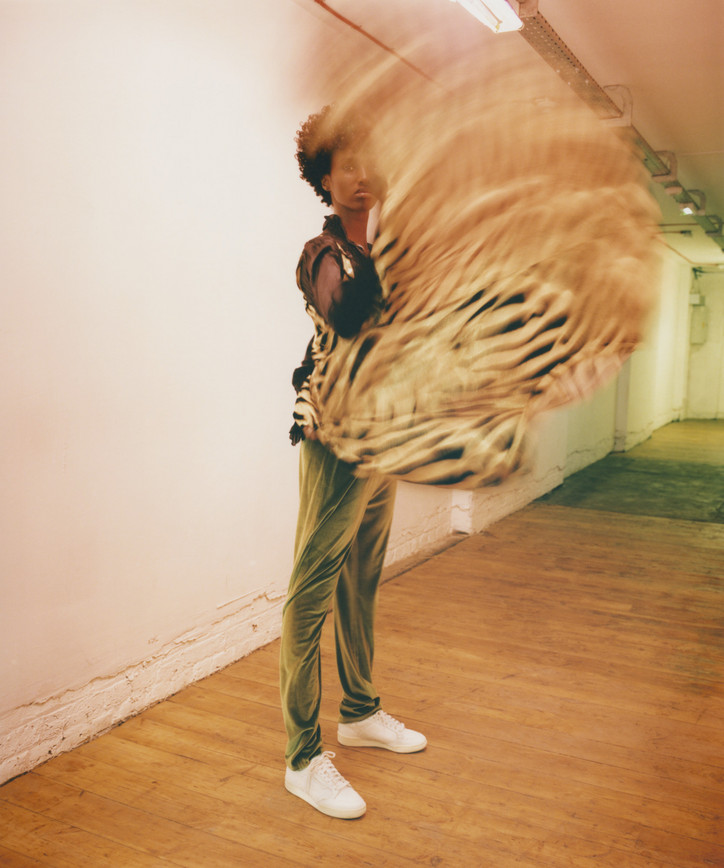
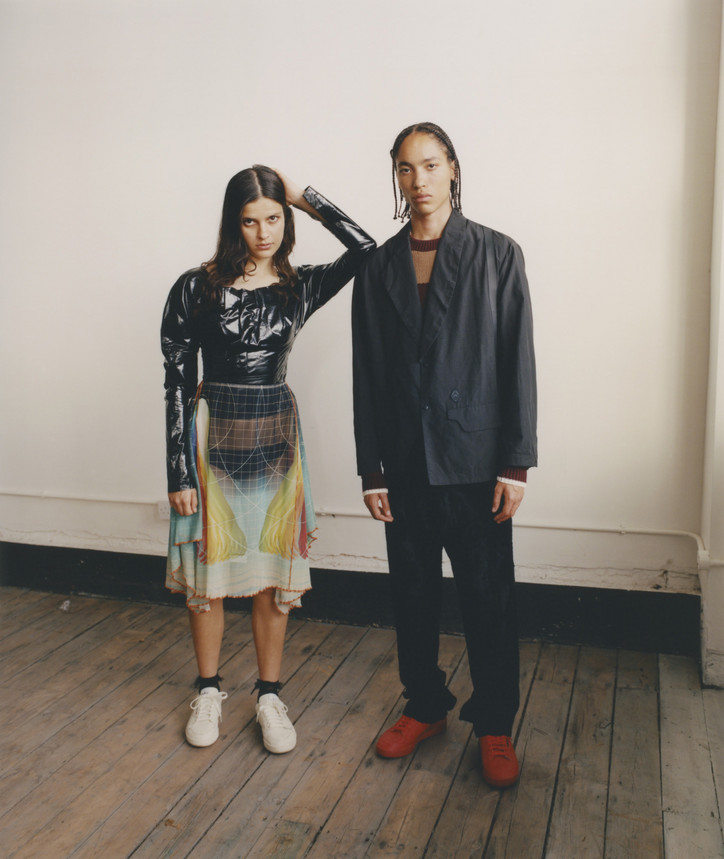
Left - Bibi wears vintage top by ALEXANDER MCQUEEN from REWIND, dress by PACO RABANNE, pants by RENATA BRENHA, shoes by ADIDAS.
Right - Evangeline wears top by A.W.A.K.E., vintage skirt by JEAN PAUL GAULTIER from ZERO COOL ARCHIVE, socks by ATTITUDE, shoes by ADIDAS. Andrew wears blazer by A-COLD-WALL*, jumper by LOU DALTON, pants by MARTINE ROSE, shoes by ADIDAS.
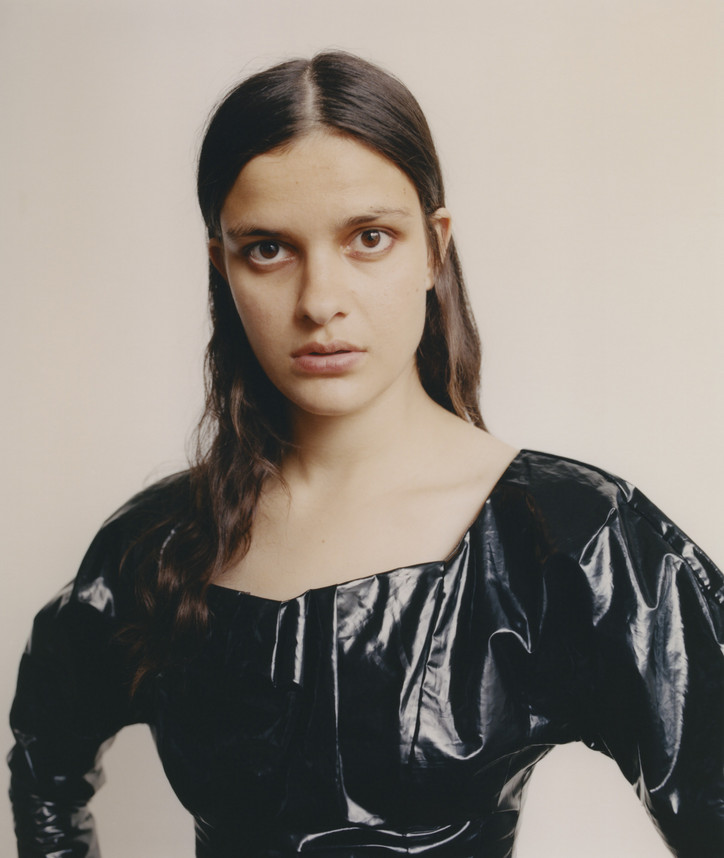
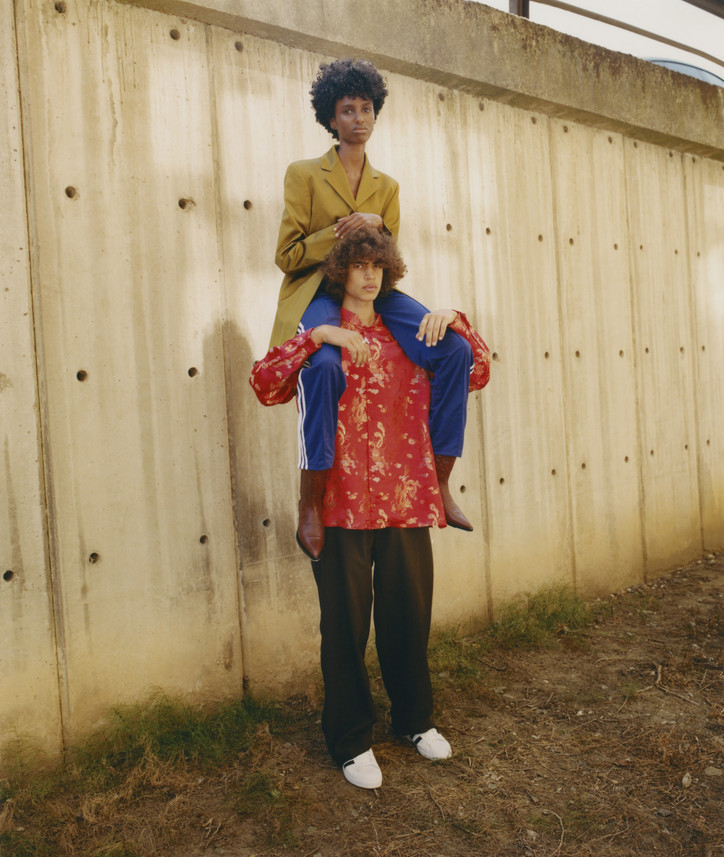
Left - Evangeline wears top by A.W.A.K.E.
Right - Bibi wears blazer by ROMEO GIGLI from REWIND, pants by ADIDAS, boots by PACO RABANNE. Finn wears shirt by MARTINE ROSE, Evangeline wears top by A.W.A.K.E. pants by LOU DALTON, shoes by ADIDAS.
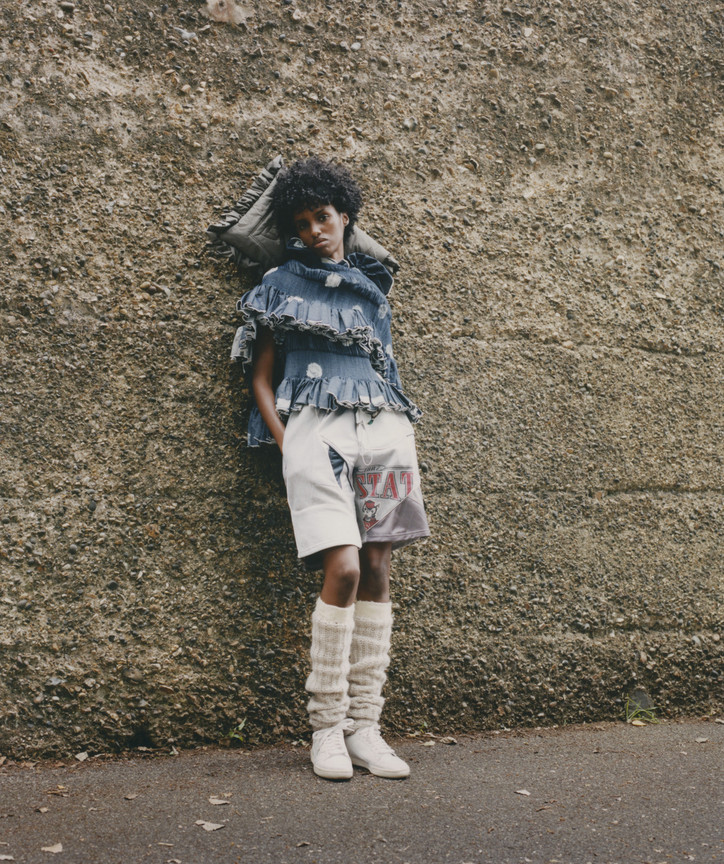
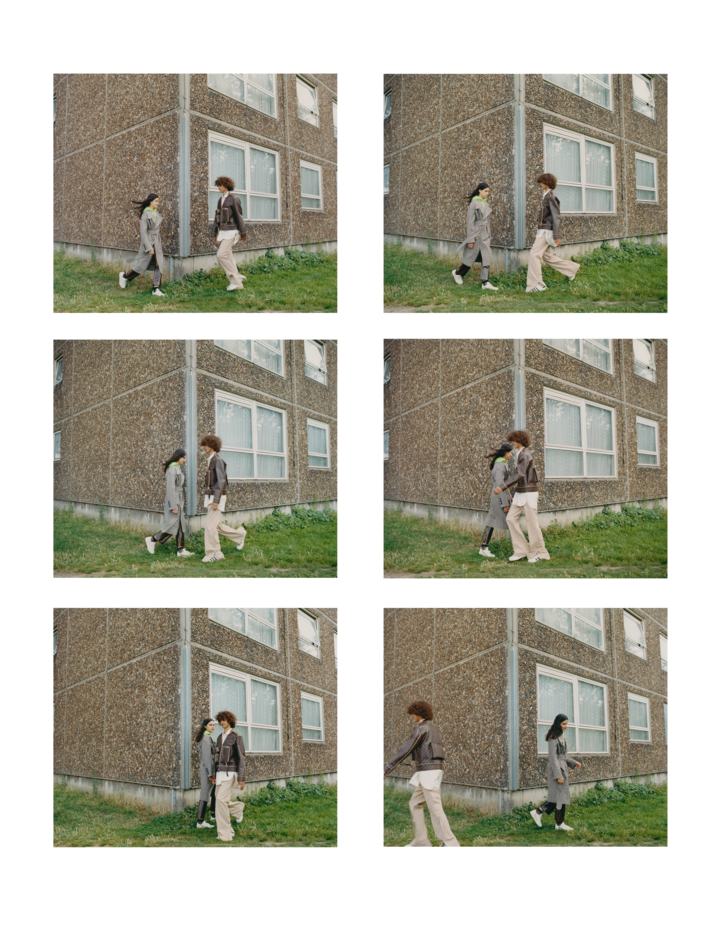
Left - Bibi wears top by RENATA BRENHA, shorts by AHLUWALIA STUDIO, socks by ACNE STUDIOS, shoes by ADIDAS, pillow by MOLLY GODDARD.
Right - Evangeline wears coat by VIVIENNE WESTWOOD, hoodie and pants by REJINA PYO, socks by ATTITUDE, shoes by ADIDAS. Finn wears jacket, shirt and pants by LOUIS VUITTON, shoes by ADIDAS.
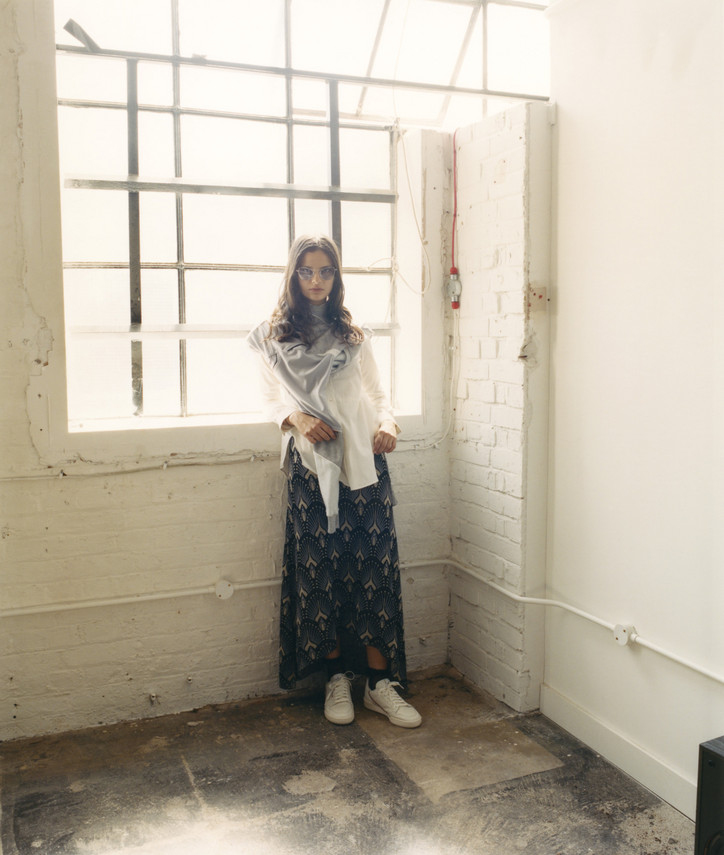
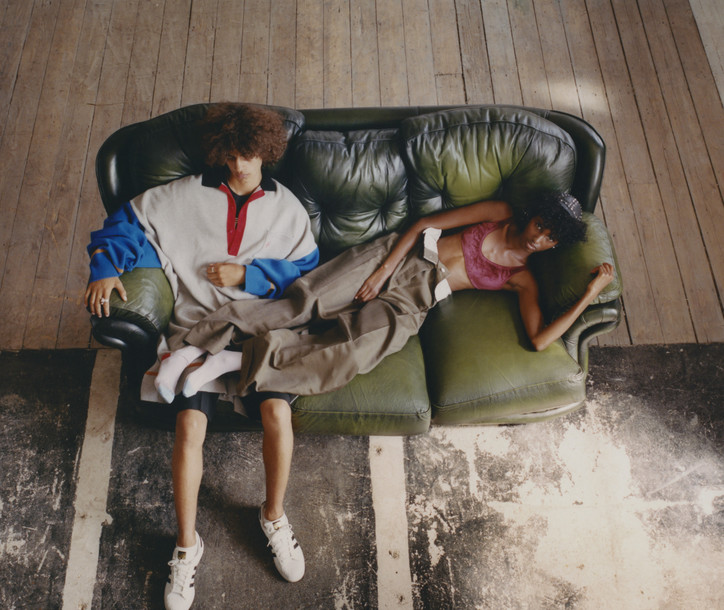
Left - Evangeline wears shirt by BIBI BLANGSTED, jumper by AHLUWALIA STUDIO, skirt by PACO RABANNE, shoes by ADIDAS, sunglasses by CUTLER AND GROSS.
Right - Finn wears top and shorts by LOEWE, shoes by ADIDAS. Bibi wears top by BASERANGE, hat by LOEWE, pants by ACNE STUDIOS, socks by MARIA LA ROSA.


Left - Finn wears shirt by NICHOLAS DALEY, T-shirt by TOTAL REFRESHMENT CENTRE, sunglasses by KUBORAUM.
Right - Bibi wears blazer by ROMEO GIGLI from REWIND, pants by ADIDAS, boots by PACO RABANNE.
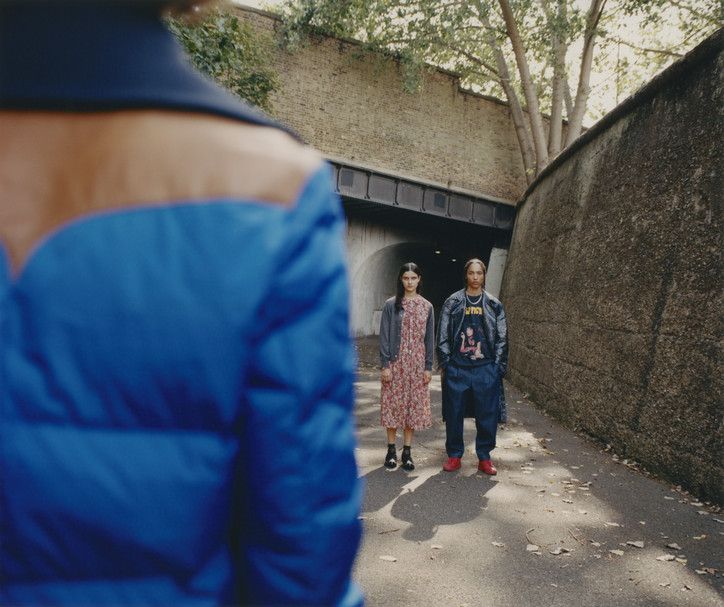
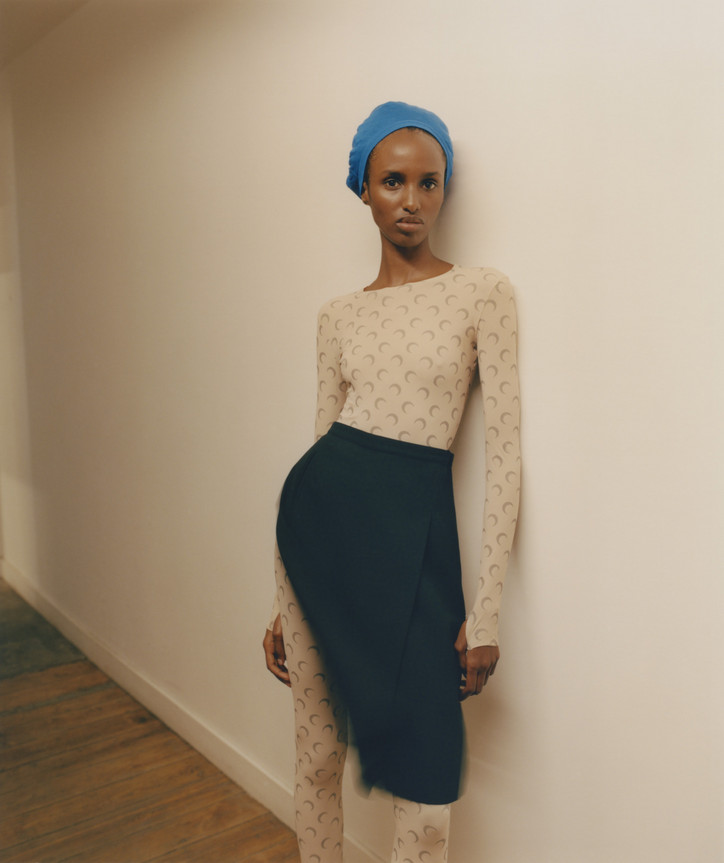
Left - Evangeline wears dress and boots by JUNYA WATANABE, socks by ATTITUDE. Andrew wears coat by DIOR, T-shirt from SEARCH & DESTROY, pants by NICHOLAS DALEY, shoes by ADIDAS, necklace by BUNNEY. Finn wears jacket by WALES BONNER.
Right - Bibi wears top and leggings by MARINE SERRE, T-shirt worn as headpiece by BASERANGE, vintage skirt by MAISON MARTIN MARGIELA from TEMPLE ARCHIVE.
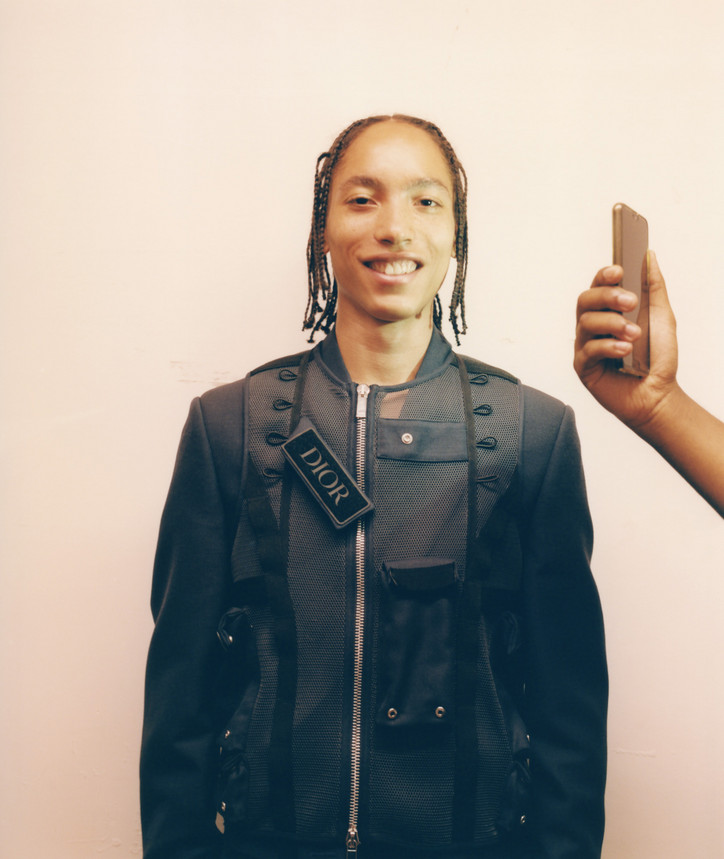
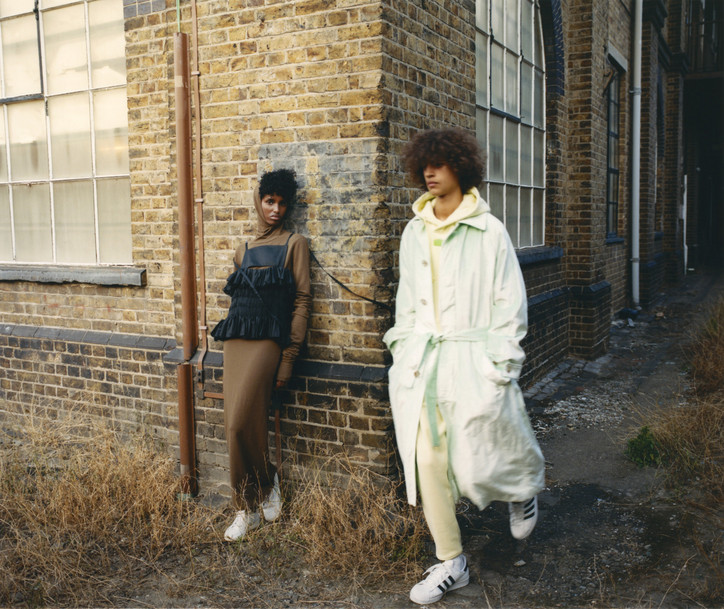
Left - Andrew wears jacket and vest by DIOR.
Right - Bibi wears dress by LEMAIRE, top by RENATA BRENHA, shoes by ADIDAS. Finn wears coat by ACNE STUDIOS, hoodie, track pants and shoes by ADIDAS.
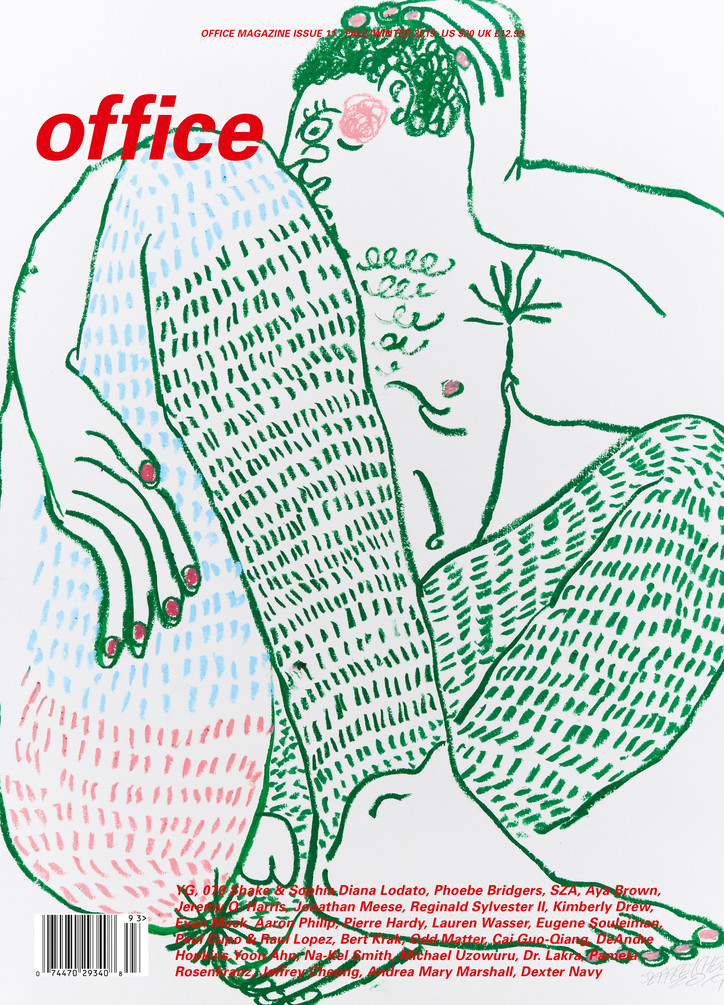
Since 2016, Oakland-based Unity Skateboarding has been fighting for representation and creating spaces for QTPOC and womxn skaters, as well as artists, through their informal network, zine-printing outlet, skate products and events. Started by Cheung and his partner, Gabriel Ramirez, the group has played host to a number of queer skate meetups across the US and supported skaters like Cher Strauberry and James Pitonyak, while also producing colorful decks, many hand painted by Cheung, featuring imagery of queer sexuality and defiantly supportive slogans such as “Don’t Be Afraid Of Who You Are” and “Like It Or Not.”
Now, after almost three years, Unity has incited its own trend: online and in cities across the world, more queer skate collectives have started to emerge, while skaters like front-blunt legend Brian Anderson, who came out in 2016, have become a more visible—and vocal—part of a skate community that, despite its penchant for subversion, still has plenty of work to do with regard to inclusivity.
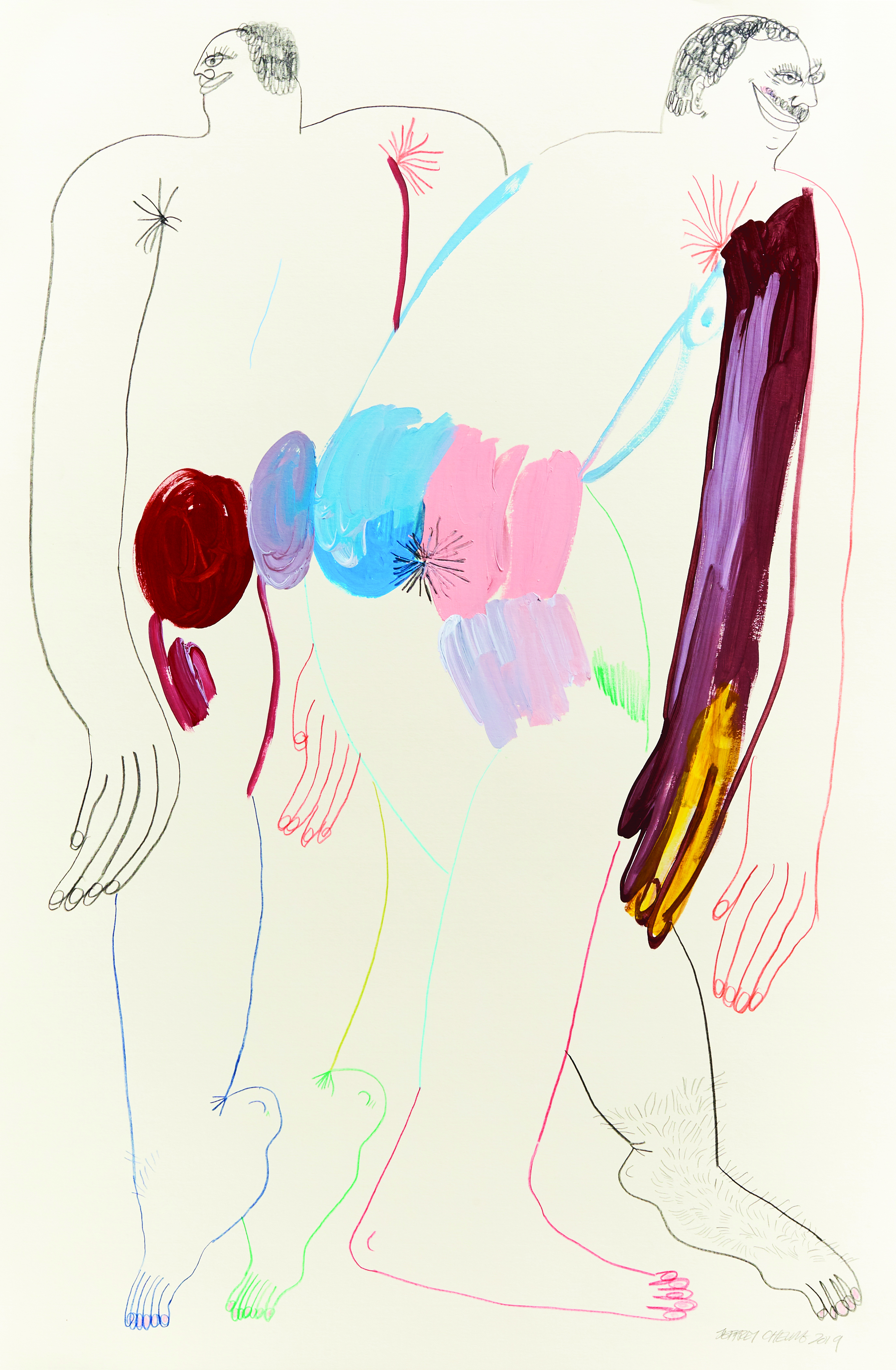
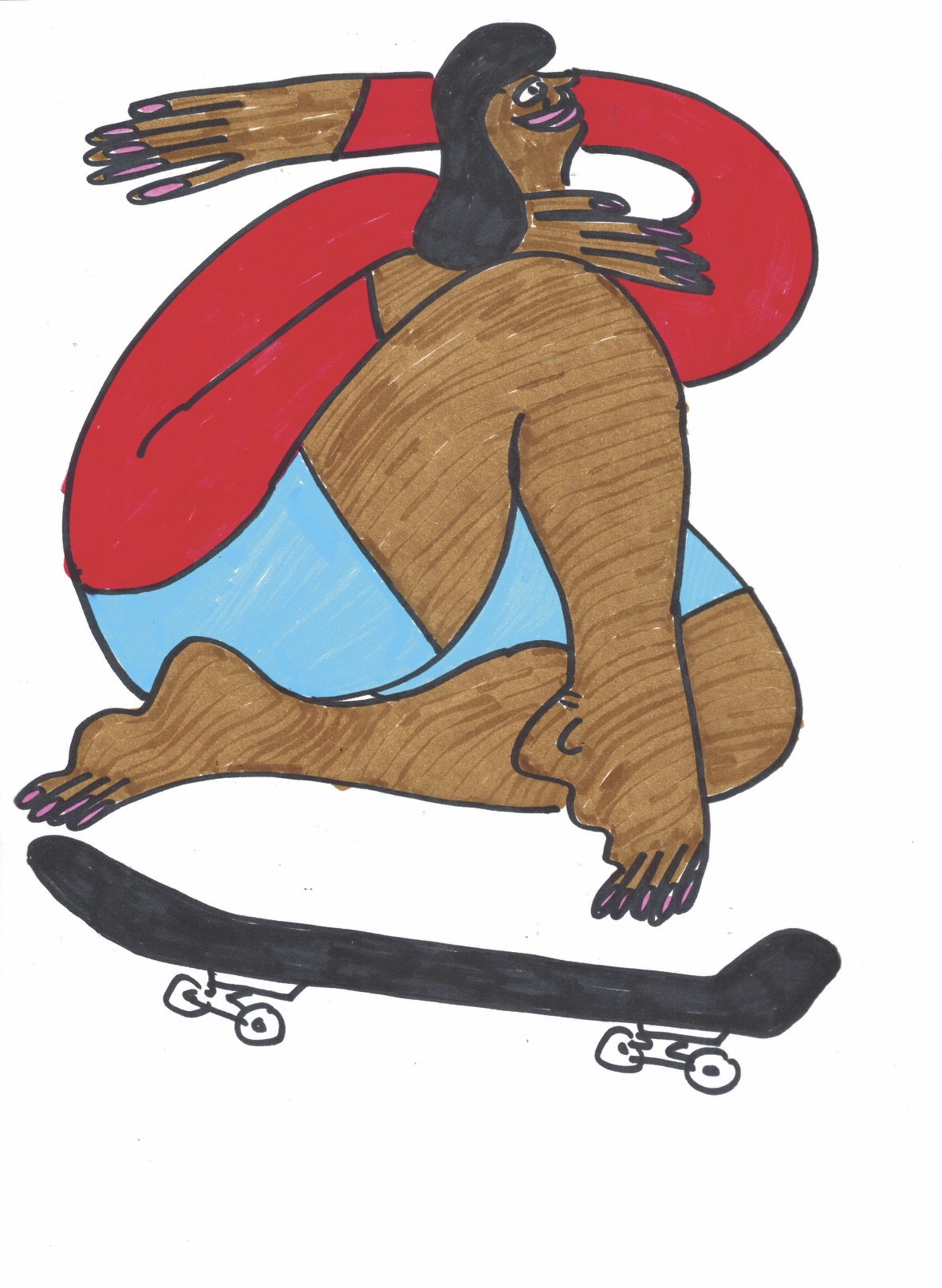
OFFICE—How did Unity Skateboarding come together?
JEFFREY CHEUNG—Gabriel [Ramirez] and I are the main organizers behind Unity, and we see it as more of a community-based project. There is no team, set crew, or collective. When I first started Unity Skateboarding, I didn’t know any other models for how it could be, so at first, I was thinking in the way of a more conventional skate company. But I met so many amazing queer and trans skaters, and young kids who wanted to skate, and I wanted to support them, and have them all be a part of Unity. I used to paint every single board for the first year or so by hand, and would write the names of each person I gave them to as ‘pro models.’ As the queer skate community came more into view and expanded, I realized I wanted everyone to be a part of it. It didn’t make sense to have a traditional team or a crew for the type of work we were doing with Unity, and we didn’t want it to seem exclusive. We just wanted to support the greater community to make skateboarding and life more inclusive to queer and trans people, womxn and people of color.
O—Why was it so important for you to create a space for those voices in the skate scene?
JC—Skateboarding, like many other things, is dominated by straight white cis men. Looking through most skateboard media, you’ll see tons of misogynistic, homophobic, transphobic things. Things are definitely changing now, though. I’m seeing the skate scene start to be more inclusive of other identities, and I think everyone is starting to feel the shift. I’m excited.
O—Do you think Brian Anderson's coming out [in 2016] has had a lot to do with that change? And what were things like before you started Unity?
JC—There have always been queer and trans people in skateboarding, but there was not much of a community or representation for us in mainstream skateboarding. Brian Anderson definitely opened the door to the idea of queer people existing in this space to the mainstream skate world, and it was a big inspiration for us. But meeting other queer skaters was just as, if not more, impactful. It’s important to know or see people like you represented in your community. It makes a big difference.
Being queer and trans in skateboarding before all of this, you were likely to feel isolated and like an outsider. That’s why I think it’s important to create these types of supportive spaces and build a community that didn’t exist. I am definitely inspired by every queer trans person that we meet that comes to our skate sessions, and am just as appreciative of them as they are of us. I’m also inspired by seeing so many other skate groups and people taking initiative to do similar meetups and create these spaces in their own cities and all over. Some other amazing groups are froSkate from Chicago, Briana King, Sibling in London, Oddity Skateboarding in Toronto, NYC Skate Project, Quell Skate, Queer Skate Date and Queer Skate LA, NYC and Atlanta.
O—Why did you originally get into skating? And when did you start printing art on your decks?
JC—Skating was an outlet for me when I was younger, and still is. I skated a lot by myself, but also connected with people through it, and it was a way for me to be creative and see a city by exploring and looking for spots. It makes you think about your environment a little differently. I started out painting decks the first year [we launched Unity], just to give them to friends and queer skaters, and I’ve painted maybe over a thousand now. We are getting them printed now and that’s pretty nice, but I still paint them by hand from time to time.
O—How else have you seen the community evolve since you launched the company?
JC—It’s been almost three years since we started Unity, and I’ve seen a lot of change already. There are way more out queer and trans skaters in the streets crushing it, many queer skate groups all over doing skate meetups, way more queer and trans people learning to skate and feeling that they’re able to be in that space. I’m seeing a big shift, even in kids at the park being more accepting, and seeing more womxn and queers out at the skateparks—and the media and skate companies are both trying to be more inclusive, which is something I had hoped would happen when we first started. It’s great that we are seeing more support for queerness from companies and the media, but it’s important and sometimes difficult to know when the support is genuine.


O—Why did you originally get into skating? And when did you start printing art on your decks?
JC—Skating was an outlet for me when I was younger, and still is. I skated a lot by myself, but also connected with people through it, and it was a way for me to be creative and see a city by exploring and looking for spots. It makes you think about your environment a little differently. I started out painting decks the first year [we launched Unity], just to give them to friends and queer skaters, and I’ve painted maybe over a thousand now. We are getting them printed now and that’s pretty nice, but I still paint them by hand from time to time.
O—What about zines—what made you want to start making and publishing them through Unity Press?
JC—I’ve found a lot of empowerment and self-validation through making zines and being able to self-produce and distribute uncensored images and ideas that can be easily accessible through print media. With Unity, we are trying to share this idea and our print resources with other folks.
O—What do you think you can express through zines—or even through painting skate decks—that you couldn't through a more traditional medium or material?
JC—Through traditional art mediums, like canvases in galleries, I suppose you can still reach a broad audience, but the art world seems to be just full of rich white people. While I am grateful that I’m able to make some money from painting to sustain my projects, the people that I want to have my artwork most of the time can’t afford to buy it. Zines, prints and decks are much more accessible, and a way that I can contribute my art to the community.
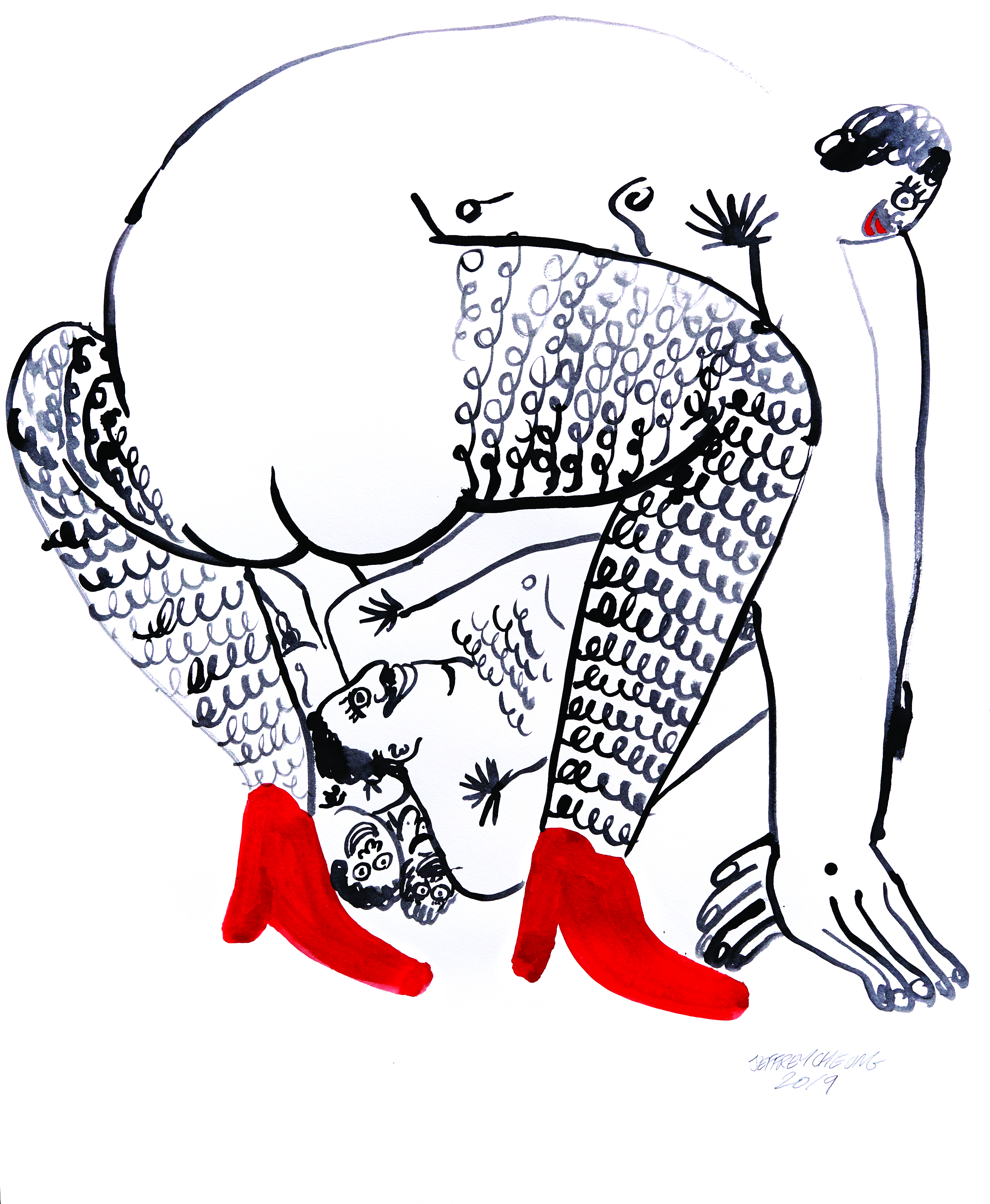

O—Who's your ultimate queer icon?
JC—Marsha P. Johnson.
O—Your favorite skater?
JC—Too many to list! But all queer and trans skaters and women of color in skating.
O—Who would be on the Unity fall playlist?
JC—Twompsax, NEON, Ah-Mer-Ah-Su, Technopagan and Club Chai.
O—What are your plans with Unity going forward?
JC—To keep it going and to continue to support queer and trans folks, especially QTPOC, in skating.
O—What about you—what’s next?
JC—I’m starting a new skateboard company soon called There, which is separate from Unity, and that should be coming out in early 2020.